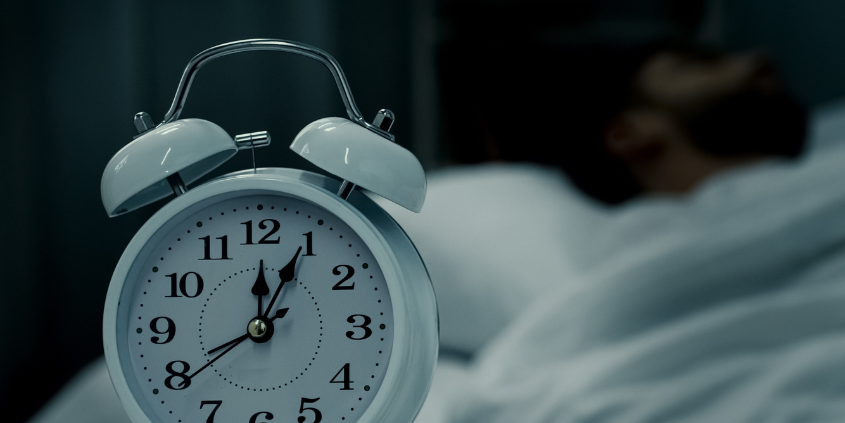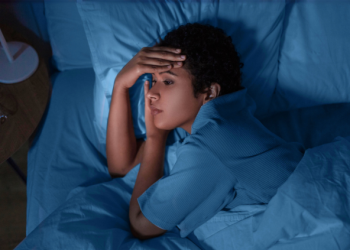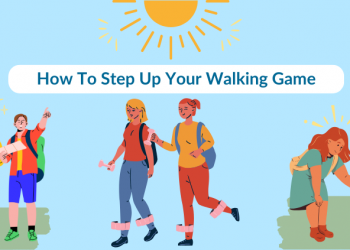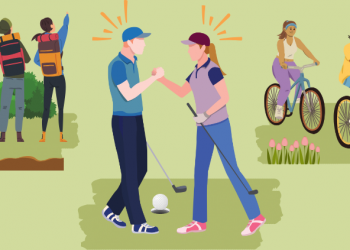Aerobic & Resistance Exercise Improves Sleep

Sleep, a fundamental element of human biology, plays a crucial role in various physiological processes. A good night’s sleep is essential for immune function, cognitive performance, emotional well-being, and overall physical health. Exercise is another critical lifestyle factor with tremendous potential to improve your health. Regular physical activity has numerous benefits, from reducing the risk of chronic diseases to improving mental health. However, could exercise improve your sleep?
Impact of Resistance Exercise on Sleep
A 2017 review found that “chronic resistance exercise improves all aspects of sleep, with the greatest benefit for sleep quality” in individuals with sleep problems. In this study, Kovacevic et al. employed a systematic review methodology by conducting an electronic database search of randomized controlled trials. Many studies fit the criteria, but three acute resistance exercise studies, seven chronic resistance exercise studies, and three combined aerobic and resistance exercise studies met the researchers’ inclusion criteria and were analyzed for sleep outcomes. The primary finding from this review was improvements in sleep from chronic exercise; these improvements were “moderate-to-large, and commonly affected overall sleep quality, sleep latency, sleep efficiency, mid-sleep disturbance, and daytime dysfunction”. In comparison, the primary medications prescribed to improve sleep quality had “only small-to-moderate effects on sleep quality” and instead have “adverse effects such as rebound insomnia, depression and anxiety, cognitive impairment, and an increased risk of falls, cancer, and overall mortality” if used in the long-term. Kovacevic et al. call for further research and more data on aerobic exercise but cites an earlier paper that noted how aerobic exercise could improve sleep quality.
Furthermore, their work highlighted how “higher intensity and greater frequency of training offer greater sleep benefits”. More specifically, the chronic resistance exercises studied that had the most benefits included machine-based resistance exercise, circuit training, and resistance bands for an average duration of 14 weeks total with approximately 60 minutes per session. Studies with high exercise intensity as compared to low-to-moderate intensity, and with a frequency of 3 days/week as compared to 1-2 days/week, had a larger beneficial effect on sleep quality.
The review presented another pathway by which exercise could improve sleep; exercise improves levels of anxiety and depression, both of which deeply affect sleep — “notably, exercise has been shown to be an effective treatment for major depression and sleep disturbance is one of the core symptoms of depressive illness” and “the majority of chronic studies included in this review reported significant improvements in neuropsychological outcomes”.
Impact of Aerobic Exercise on Sleep
Additional research has also shown the further benefits of aerobic exercise for people with established sleep disorders. One study showcased how “4 months of aerobic exercise training in a sample of older adults with insomnia significantly improved sleep quality while also reducing daytime sleepiness and depressive symptoms”. Another study found that “12 weeks of moderate-intensity aerobic and resistance exercise resulted in a 25% reduction in OSA [obstructive sleep apnea] severity”. Lastly, studies have even shown that the circadian rhythms disrupted in neurodegenerative disease can be improved with exercise — “exercise has proven to be a low risk and beneficial intervention to improve overall health and sleep disorders in AD [Alzheimer’s disease] and PD [Parkinson’s Disease]”. In particular, “physical activity, even at low intensities, has been reported to improve sleep quality, reduce time to fall asleep, and increase the duration of sleep in the elderly… evidence indicates that exercise increases total sleep time and slow-wave sleep”.
We all strive for better sleep even if we do not have a known sleep disorder, and it could be within our grasp through a novel route. Exercising for an hour three times a week at high intensity with machine-based resistance exercise, circuit training, or resistance bands can improve your sleep quality and decrease issues in the day. Even once a week at a lesser intensity for 40 minutes showed beneficial effects! Sleep and exercise are significant pillars in lifestyle medicine, and it is fascinating how one affects the other. Rather than relying on medications that can have adverse effects, research suggest exercise is a natural way we can improve our sleep. While further research is needed, recognizing the interconnectedness of exercise and sleep as critical components of a healthy lifestyle is crucial.
Sources:
- Kline, Christopher E. “The bidirectional relationship between exercise and sleep: Implications for exercise adherence and sleep improvement.” American Journal of Lifestyle Medicine. 2014 August
- Kline, Christopher E et al. “The effect of exercise training on obstructive sleep apnea and sleep quality: a randomized controlled trial.” Sleep. 2011 December
- Kovacevic, Ana et al. “The effect of resistance exercise on sleep: A systematic review of randomized controlled trials.” Sleep Medicine Reviews. 2018 June
- Memon, Adeel A et al. “Effects of exercise on sleep in neurodegenerative disease.” Neurobiology of Disease. 2020 July
- Reid, Kathryn J et al. “Aerobic exercise improves self-reported sleep and quality of life in older adults with insomnia.” Sleep Medicine. 2010 October
- Yang, Pei-Yu et al. “Exercise training improves sleep quality in middle-aged and older adults with sleep problems: a systematic review.” Journal of physiotherapy. 2012 September






















